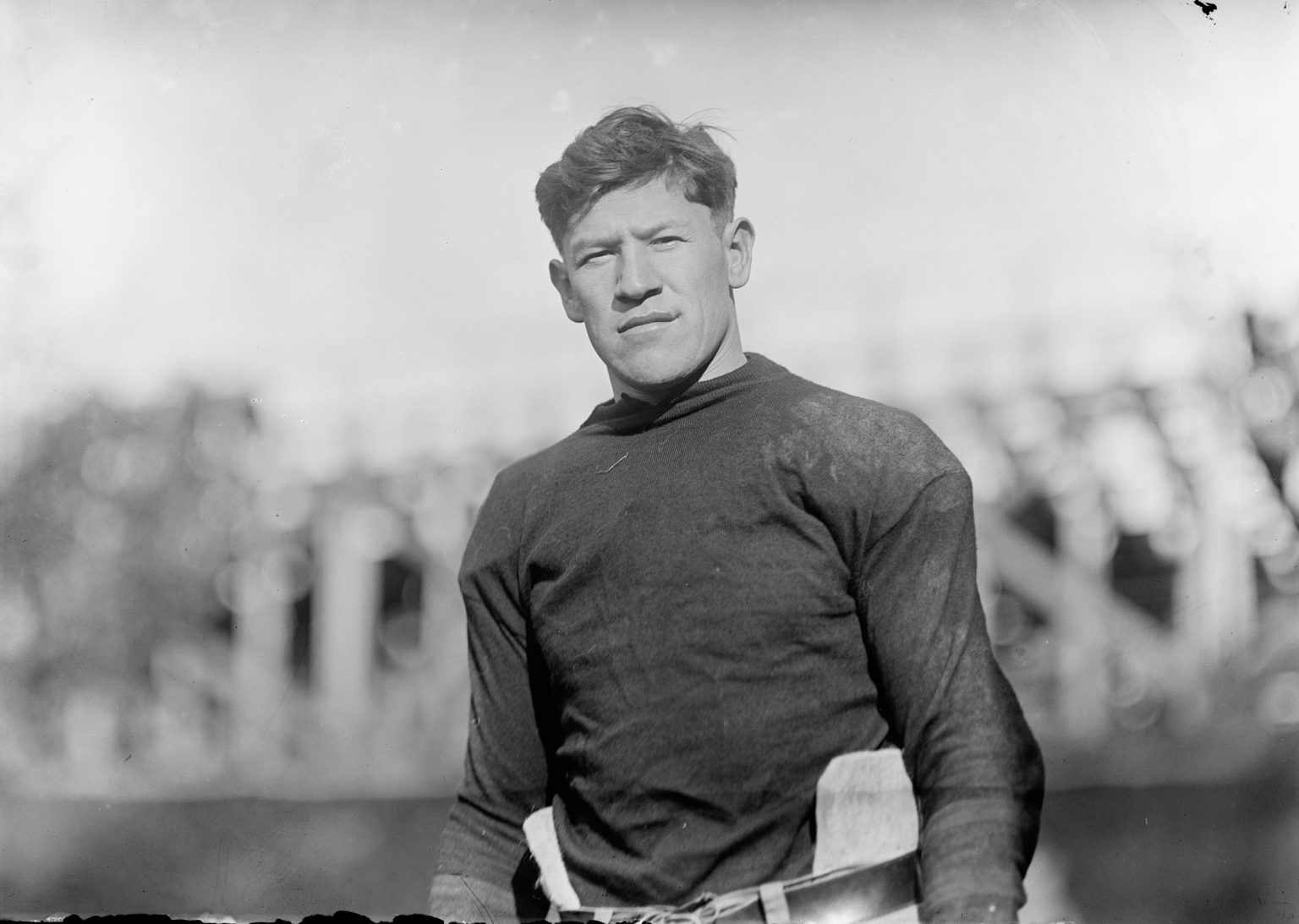Two-time Olympic gold medalist and Pro Football Hall of Fame member James Francis “Jim” Thorpe was born on May 28, 1888 in Oklahoma. Raised by Hiram and Charlotte Vieux Thorpe on the Sac and Fox reservation, Thorpe was given the Native American name “Wa-tho-huck,” meaning “Bright Path.” Thorpe would go on to become one of the athletic superstars of the 20th century, excelling in track and field and football during his time at the Carlisle Indian School in Pennsylvania. Coached by Glenn S. “Pop” Warner, Thorpe joined the school’s track and football teams, setting the stage for his future success.
In 1907, Thorpe made his entry into track and field after clearing a high jump bar that was set at 5’9″. This moment marked the beginning of a legendary sports career for Thorpe, who quickly became a star athlete under the guidance of Warner. Despite dropping out of the Carlisle Indian School in 1909, Thorpe returned in 1911 and was named a football first-team All-American selection for 1911 and 1912. He went on to compete in the decathlon and pentathlon at the 1912 Olympic Games, winning both events despite facing challenges such as missing shoes during the decathlon.
Following his victories at the Olympics, controversy arose when it was discovered that Thorpe had played semi-professional baseball in violation of amateurism rules. As a result, his medals were stripped in 1913, although he was posthumously reinstated as the co-winner of the events in 1982. In 2022, the International Olympic Committee reinstated Thorpe as the sole winner of the 1912 Olympic pentathlon and decathlon. Thorpe’s legacy continues to be celebrated, with the “Jim Thorpe Award” being presented annually to the top defensive back in college football since 1986.
After the Olympics, Thorpe pursued a professional sports career, playing baseball from 1913 to 1919 for teams such as the New York Giants, Boston Braves, and Cincinnati Reds. He also played professional football for the Canton Bulldogs in 1915, where he was signed for $250 per game. Thorpe’s impact on the sport of football was significant, as he both played for and coached the Canton Bulldogs, helping them secure unofficial world championships in 1916, 1917, and 1919. Named president of the National Football League in 1920, Thorpe’s impressive athletic abilities and leadership skills left a lasting mark on the sport.
Despite his death in 1953, Jim Thorpe’s legacy lives on through his accomplishments in sports. The Pro Football Hall of Fame enshrined Thorpe in 1963, recognizing his contributions to both football and athletics as a whole. The Jim Thorpe Award, presented annually to the top defensive back in college football, continues to honor his memory. Thorpe’s extraordinary talent and achievements have solidified his place in sports history, with his impact still being felt in the world of athletics today.


